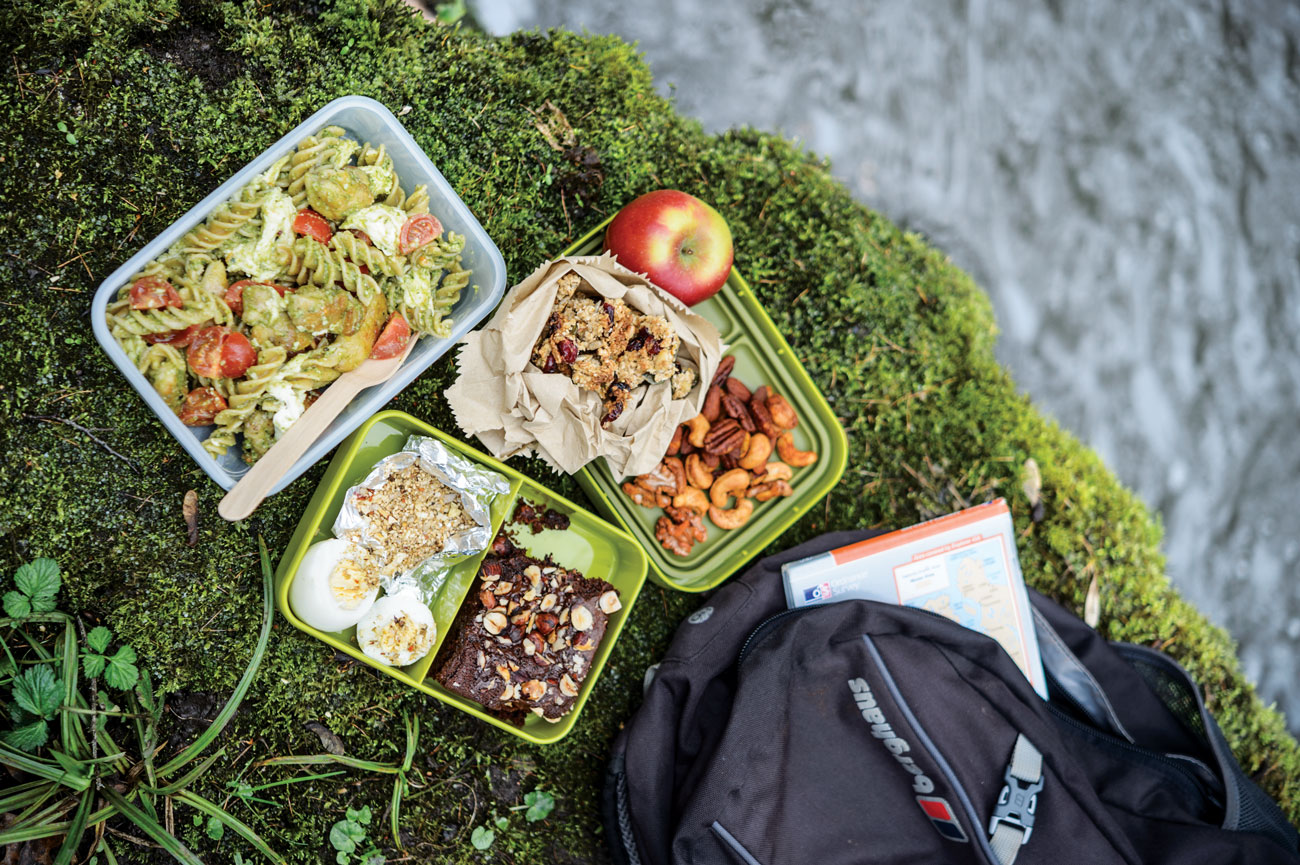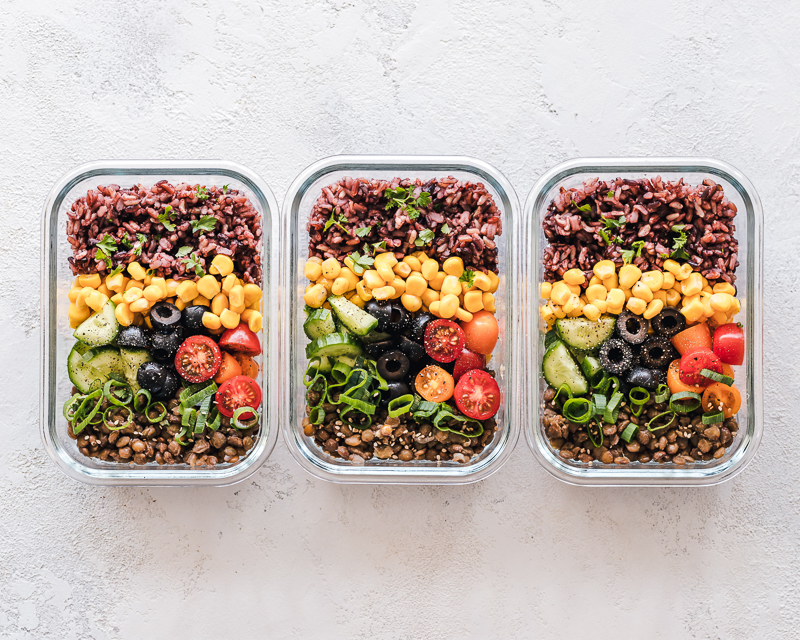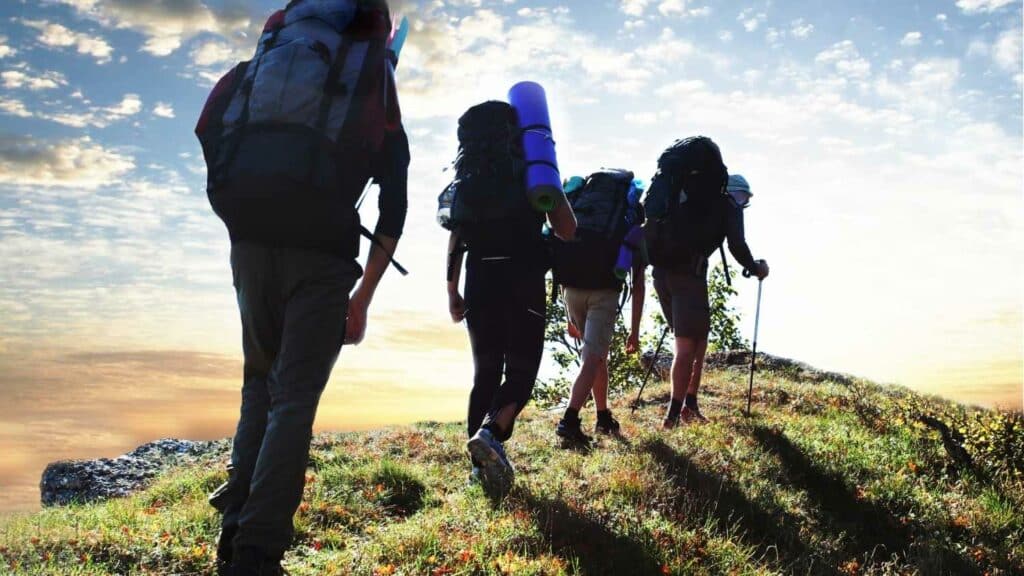Fueling Your Adventure: A Comprehensive Guide to Nutrition Tips for Trekkers
Embarking on a trekking adventure is not only a test of physical endurance but also a mental and emotional challenge. Whether you're navigating through dense forests, ascending steep mountain trails, or crossing rugged terrains, your body requires optimal fuel to perform at its best. Nutrition plays a crucial role in sustaining your energy levels, enhancing recovery, and ensuring an enjoyable trekking experience. In this article, we'll explore essential nutrition tips for trekkers to help you fuel your adventure and make the most of your outdoor escapade.
1. Hydration Matters:

One of the fundamental aspects of trekking nutrition is staying adequately hydrated. Dehydration can lead to fatigue, muscle cramps, and a decline in overall performance. In high-altitude environments, such as mountain treks, the risk of dehydration is even higher due to increased respiratory and urine losses. Carry a durable water bottle and aim to drink at least 2-3 liters of water per day, adjusting the intake based on your activity level, climate, and altitude. Additionally, consider using electrolyte tablets to replenish essential minerals lost through sweat.
2. Balanced Meals:

When planning your trekking meals, focus on creating a well-balanced diet that includes a mix of carbohydrates, proteins, and fats. Carbohydrates are your primary energy source and should constitute the bulk of your meals. Opt for complex carbohydrates like whole grains, oats, and brown rice to provide sustained energy. Include lean proteins from sources like chicken, fish, beans, and nuts to support muscle repair and recovery. Don't forget healthy fats from avocados, nuts, and olive oil to maintain energy levels during long treks.
3. Trail Snacks:

Packing lightweight, energy-dense snacks is crucial for maintaining energy levels throughout the trek. Trail mix, energy bars, dried fruits, and nuts are excellent options. They provide a quick source of carbohydrates, proteins, and healthy fats. Consider your preferences and dietary restrictions when choosing snacks, and ensure they are easy to carry and consume on the go. Small, frequent snacks can help prevent energy dips and keep you fueled for the journey.
4. Adequate Protein Intake: Protein is essential for muscle repair and recovery, making it a vital component of your trekking nutrition. Include protein-rich foods in each meal and snack to ensure your muscles are well-supported during the trek. Portable protein sources like jerky, nut butter, and protein bars can be convenient options on the trail. If you prefer a plant-based diet, incorporate legumes, tofu, and quinoa to meet your protein needs.
5. Mindful Carb Loading: For multi-day treks or strenuous uphill climbs, consider implementing carb-loading strategies a day or two before the trek. This involves increasing your carbohydrate intake to maximize glycogen stores in your muscles and liver, providing a readily available energy source. Include complex carbohydrates like pasta, potatoes, and bread in your pre-trek meals. However, avoid overeating, as it can lead to discomfort during the trek.
6. Adapt to Altitude: If your trek involves significant altitude changes, it's essential to adapt your nutrition to the challenges of high-altitude environments. Altitude can affect your appetite and digestion, making it crucial to choose easily digestible foods. Focus on simple, nutrient-dense meals and stay well-hydrated to combat altitude-related challenges such as nausea and headaches.
7. Vitamin and Mineral Supplementation:

In some cases, trekkers may benefit from vitamin and mineral supplementation, especially in environments where access to a variety of fresh produce is limited. Vitamin C, for example, can help boost the immune system, while iron supplements may be necessary for individuals prone to anemia. Consult with a healthcare professional before starting any supplementation regimen to ensure it aligns with your individual needs.
8. Plan for Special Dietary Needs: If you have specific dietary restrictions or preferences, planning becomes even more critical. Ensure you pack enough food that aligns with your dietary needs, especially if you're trekking in remote areas where food options may be limited. Gluten-free, vegetarian, and vegan options are increasingly available in the form of dehydrated meals or easy-to-carry staples.
9. Timing Matters: Consider the timing of your meals to optimize energy levels during the trek. A balanced breakfast before starting your trek provides a good foundation, and regular snacks throughout the day help maintain a steady energy supply. Plan for a larger, well-balanced meal at the end of the day to support recovery and prepare for the next day's trek.
10. Listen to Your Body: Above all, listen to your body's cues and adjust your nutrition plan accordingly. If you feel fatigued, it may be a sign that you need more fuel. Likewise, if you experience digestive issues, reconsider the types of foods you are consuming. Every trek is unique, and your body's needs may vary based on factors such as terrain, weather, and altitude.
11. Sustainable Nutrition Practices:

Trekking in nature comes with a responsibility to minimize our impact on the environment. Consider sustainable nutrition practices by choosing foods with minimal packaging, opting for reusable containers, and avoiding single-use plastics. Also, be mindful of waste disposal, following the principles of Leave No Trace to preserve the beauty of the natural landscapes you explore.
12. Caffeine's Role: For many trekkers, a cup of coffee or tea can be a comforting ritual during breaks. Beyond its psychological benefits, caffeine can enhance endurance and mental alertness, making it a valuable addition to your trekking nutrition. However, be mindful of your caffeine tolerance, especially at higher altitudes where its effects can be more pronounced. Hydrate adequately, and consider consuming caffeine earlier in the day to avoid sleep disturbances.
13. Importance of Antioxidants: In the midst of your trekking adventure, your body is exposed to various environmental stressors, including increased sun exposure and higher altitudes. Antioxidants play a crucial role in protecting your cells from oxidative damage caused by these stressors. Incorporate colorful fruits and vegetables rich in antioxidants, such as berries, citrus fruits, and leafy greens, into your diet. These not only contribute to your overall health but also aid in recovery from the physical strain of trekking.
Conclusion:

In conclusion, proper nutrition is a cornerstone of a successful trekking experience. By prioritizing hydration, maintaining a balanced diet, and being mindful of your body's needs, you can ensure that your energy levels are sustained, and your body is equipped to handle the challenges of the trail. Remember that each trek is an opportunity to learn more about your body's requirements, so don't be afraid to experiment with different foods and strategies to find what works best for you. With the right nutrition plan, you'll not only conquer the physical demands of the trek but also savor the breathtaking landscapes and unforgettable moments that come with the adventure


